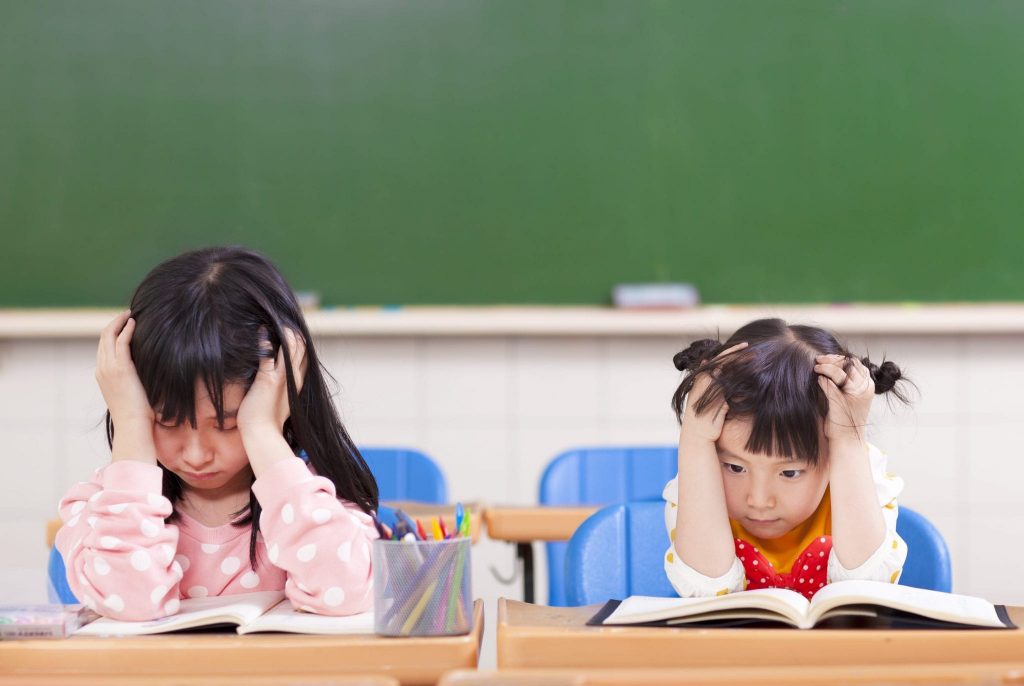
Gifted children behavior problems are something that almost every teacher or child support worker will have to deal with at some point. Gifted children face challenges that their peers at school do not, and these challenges can lead to them exhibiting undesirable behaviors in the classroom.
Common gifted children behavior problems include aggression, refusal to take school work seriously, social withdrawal, anxiety, truancy and more. In many cases, these behavior problems are mistaken for inability to perform at school, so the child does not get the support that they need.
Giften children often have an intellectual understanding of abstract concepts such as death and sex, but they do not yet have the emotional tools to deal with those concepts, so they are far more concerned by them than children who are less intellectually developed. This lack of emotional maturity can also cause problems when children have an intellectual understanding of a subject or a task, but lack the co-ordination or strength to complete it.
Gifted children are often able to engage in conversations with adults, and can sometimes be manipulative. They have the ability to create logical and very convincing arguments, and use that to their advantage. While this may seem like a good thing, it can leave the child feeling confused and insecure because they depend on adults for direction, but are able to manipulate them. They may also struggle to form relationships with their peers, because they have a vocabulary that is too advanced for them to understand.
School can be boring for gifted children because they are able to complete the work assigned to them too easily, and have to wait for other children to catch up. Their perfectionist nature makes it hard for them to work in a team with less able children, and the boredom they feel in class means that they do not enjoy school as much as they should.
During the first few terms at school or with a new teacher they may raise their hand in class frequently, but this could lead to them being bullied, or cause the teacher to tell them to stop being so pushy. A gifted or talented child could quickly find themselves feeling like an outcast at school.
Support for Gifted Children

Enrolling children in a gifted education program is a good option for dealing with serious gifted children behavior problems. Gifted children need challenged, and if they cannot get that challenge by advancing an extra year at school then they should be given the option of enrolling in some extra-curricular programs, swapping some fundamental classes for more advanced classes, or taking up some more interesting subjects.
One common mistake that parents of gifted children make is to push them to specialise too early on. This can lead to the child feeling pressure to study one subject or work hard at one sport, instrument or subject. This is a mistake.
It is better to allow a gifted child to spread their efforts out and try a few different things while they are young, learn quickly, and have a lot of enthusiasm. Yes, this may mean that they won’t be the youngest ever black belt, or that they won’t get a junior placement to a prestigious music college, but there is no point in them earning those accolades if they don’t pursue those subjects later in life. Allowing your child to experiment when they are still young will put them in a better position to do well when it really matters.
Parents, and teachers, of gifted children should remember that those children are still young and lack life experience. They may perform at an adult level in some areas, but they lack the frame of reference and understanding that adults have and they may still be prone to bouts of childish behavior. Do not expect them to be miniature adults at all times. Let them rest, play and express frustration like a child, and don’t put too much pressure on them. Let them enjoy learning, and give them a safe space to express themselves, especially when they feel confused or vulnerable around their peers.
Coping With Twice Exceptional Children
Behavioral problems are particularly common in twice exceptional children. A twice exceptional child is a child that is gifted in some way but that also suffers from a disability. For example, a child with autism may be gifted academically but struggle in social situations, or a child with dyslexia may have an aptitude for certain subjects, but struggle to perform because of their reading difficulties.
Twice exceptional children who are given support to work around their disability usually do incredibly well, however, they often fail to obtain that support because their difficulties are not noticed and teachers wrongly assume that the child is simply wasting their talent.